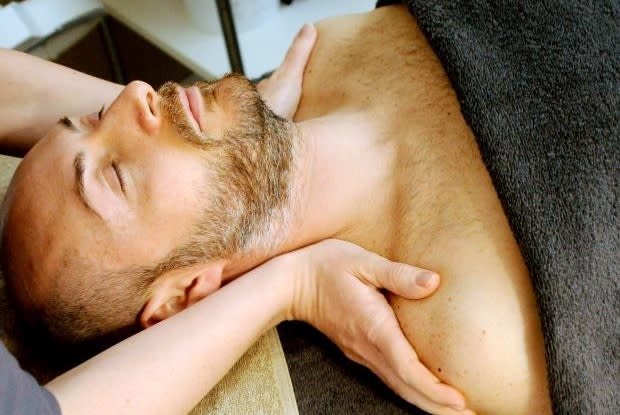Table of Contents
III. Choose Healthy Eating Options
V. Avoid Styling Tools and Bleach
Many men worry about losing their luscious locks as they grow older. If your dad and grandfather went bald, this is a valid fear to have as you grow older. In some cases, men can catch it early and prevent further hair loss with medications like Propecia and Avodart.
A Propecia regime can significantly help men who have excess levels of the DHT hormone in the body. DHT is related to the testosterone hormone and sometimes targets the hair follicles, making it difficult for healthy hair to grow. Every person has their specific hair loss journey, so your doctor will only prescribe Propecia (finasteride) or Avodart (dutasteride) to help your type of hair loss.
Medications can help regulate hormones in the body, but there are several things you can incorporate or cut out of your lifestyle that will increase your chances of keeping that full head of hair. Read on to learn five ways to prevent hair loss. [1]
1. Stop Smoking
We all know that smoking affects your lungs and just about every organ in the body, but most of us do not realize the impact on hair follicles. Overall, smoking decreases the circulation of blood within the body. This directly impacts the organs, but the lack of circulating nutrients and oxygen can damage the DNA and the hair follicles.
The fumes emitted by a cigarette are absorbed in the hair and cause damage, along with a lingering smell of smoke in the hair. The hair follicles become damaged at the root, which can increase the risk of hair loss. If you quit smoking, the quality of your body, as well as your hair, will improve. Smoking can cause the following side effects on the hair: You may want to wash your body every day, but you may want to skip the shampoo. Dermatologists say that the frequency of shampooing depends on the person and the oiliness of the scalp. Many of us were raised to believe that a daily shower is the only way to clean ourselves properly. Shampooing is an important part of scalp health and necessary for hair growth, but over-shampooing can have the opposite effect and increase the rate of thinning hair and hair loss. In general, dermatologists recommend shampooing the hair every other day and avoid washing it every day. If you already have dry and brittle hair, frequent shampooing can make it worse and more susceptible to hair loss. [3] What we eat every day affects more than our waistlines and gastrointestinal system. If you eat unhealthily, it can also take a toll on your hair and increase your risk of premature hair loss. Many dieticians recommend adopting a Mediterranean diet to assist in the health of your entire body. This diet is common among people in the Mediterranean regions of the world, like Greece and Italy. This diet focuses on lean proteins, nuts, fruits, vegetables, healthy fats, and whole grains. Eating protein should be an essential part of your diet because hair is also made of protein. If you eat an adequate amount of protein, your hair will maintain its strength and structure. [3] Many people are treated for genetic hair loss when they are experiencing an iron deficiency. Iron deficiency can cause hair loss along with unexplained fatigue, general weakness, and shortness of breath. [4] If you have been prescribed finasteride or dutasteride to aid in hair loss, you may want to try a scalp massage to help with circulation. A gentle scalp massage is usually done with oil, but you may be able to multitask and give yourself a massage while you are shampooing in the shower. This massage may be helpful because massage stimulates blood flow to the scalp area, improving hair health and growth. One study in 2016 found that daily four-minute scalp massages for 24 weeks improved hair growth in men. To start a massage, use the fingertips of both hands to apply light pressure to the scalp. Move your fingertips in small circles and work your way across the scalp to cover all areas. There are also many brushes and massaging tools on the market to assist in scalp massage. Try out daily massages for five minutes to see if an improvement in hair health is seen. [5] Overprocessing your hair can increase your risk of hair loss. If you frequently bleach your hair to attain a lighter color, you can alter the texture of your follicles. Bleach is a harsh chemical that can lighten the hair, but also thins the hair and makes it more prone to breakage. If you are worried about your hair health, you may want to tell your hairdresser that you want to take a break from the bleach to minimize hair thinning. Heated hair tools may also cause damage over time. Occasional use of these tools should not have a huge effect, but frequent use of curling irons, hot rollers, and flat irons can cause breakage and make the scalp weak. Heated tools can damage the hair cuticle on the outer layer of the hair. Hairstylists recommend avoiding the highest heat setting on your styling tools and using heat-protectant spray before use. [3] If you are worried about the state of your hair, it is important to get help before the damage is too advanced. Visit Canada Pharmacy Depot today to save money on hair loss medications like Propecia or Avodart. The content provided in this article is based on thorough research and in some cases, reviewed by a medical professional. Our goal for the information is to provide helpful, general health informational. It is not intended as a substitute for professional medical advice.
II. Change Your Shower Habits

III. Choose Healthy Eating Options
IV. Try a Scalp Massage

V. Avoid Styling Tools and Bleach
